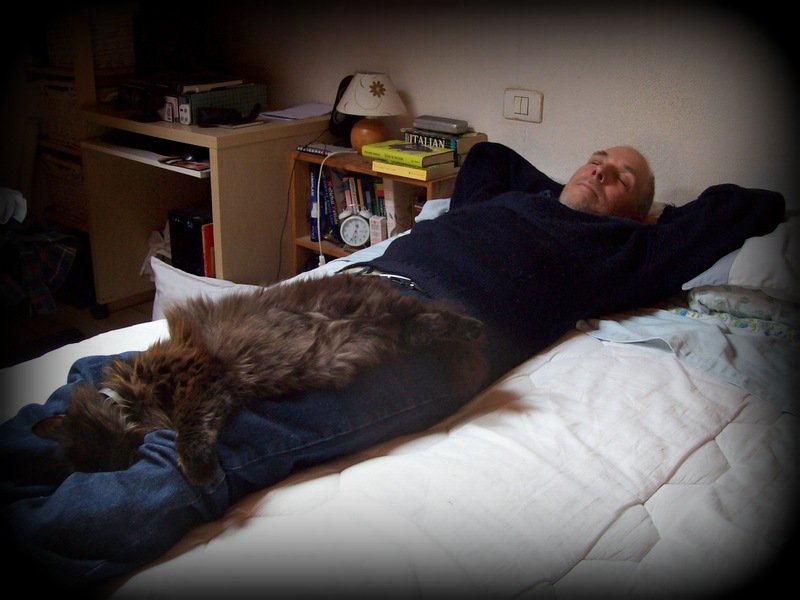The Italian Subjunctive – 2. Irregular Verbs Posted by Geoff on May 3, 2017 in Grammar
In our previous article about the Italian subjunctive, The Italian Subjunctive – 1. Present Tense, we looked at il congiuntivo presente. Today, we’re going to examine le forme irregolari (irregular forms), once again in the present tense.
These irregular verbs also happen to be the most important and frequently used. Here they are with practical examples of how to use them:
List of irregular verbs in the present subjunctive:
Essere (to be): io sia, tu sia, lui/lei sia, noi siamo, voi siate, loro siano
Avere (to have): io abbia, tu abbia, lui/lei abbia, noi abbiamo, voi abbiate, loro abbiano
Andare (to go): io vada, tu vada, lui/lei vada, noi andiamo, voi andiate, loro vadano
Dare (to give): io dia, tu dia, lui/lei dia, noi diamo, voi diate, loro diano
Dire (to say): io dica, tu dica, lui/lei dica, noi diciamo, voi diciate, loro dicano
Dovere (to have to): io debba, tu debba, lui/lei debba, noi dobbiamo, voi dobbiate, loro debbano
Fare (to do, to make): io faccia, tu faccia, lui/lei faccia, noi facciamo, voi facciate, loro facciano
Potere (to be able to): io possa, tu possa, lui/lei possa, noi possiamo, voi possiate, loro possano
Rimanere (to remain): io rimanga, tu rimanga, lui/lei rimanga, noi rimaniamo, voi rimaniate, loro rimangano
Riuscire (to manage): io riesca, tu riesca, lui/lei riesca, noi riusciamo, voi riusciate, loro riescano
Sapere (to know): io sappia, tu sappia, lui/lei sappia, noi sappiamo, voi sappiate, loro sappiano
Stare (to stay): io stia, tu stia, lui/lei stia, noi stiamo, voi stiate, loro stiano
Tenere (to hold): io tenga, tu tenga, lui/lei tenga, noi teniamo, voi teniate, loro tengano
Uscire (to exit): io esca, tu esca, lui/lei esca, noi usciamo, voi usciate, loro escano
Venire (to come): io venga, tu venga, lui/lei venga, noi veniamo, voi veniate, loro vengano
Volere (to want): io voglia, tu voglia, lui/lei voglia, noi vogliamo, voi vogliate, loro vogliano
When to use the congiuntivo presente:
1. We use the present subjunctive with verbs which express: wishes, thoughts, beliefs, worries, and doubts, when they are followed by the conjunction che (that).
E.g.: voglio che (I want that), spero che (I hope that), penso che (I think that), credo che (I believe that), temo che (I’m afraid that), dubito che (I doubt that).
Examples:
penso che sia meglio partire presto (I think it’s better to leave early)
dubito che Mr.Black voglia rinunciare al suo letto! (I doubt that Mr.Black wants to give up his bed!)
Maria vuole che tu rimanga anche a cena (Maria wants you to stay for dinner as well)
speriamo che Mario e Lucia riescano ad arrivare in tempo (let’s hope that Mario and Lucia will manage to arrive on time)
temo che Giorgio non sappia come arrivarci (I’m afraid that Giorgio doesn’t how to get there)
2. to give polite orders when using the lei form.
Examples:
mi dia il suo numero di telefono, così la chiamo appena so qualcosa (give me your telephone number, so I can call you as soon as I know something)
venga qui domani mattina alle 9.30 (come here tomorrow morning at 9:30)
prego, faccia con comodo, non c’è fretta (please, take your time, there’s no hurry)
vada sempre dritto, poi al semaforo giri a destra (go straight on, then turn right at the traffic light)
stia tranquillo, vedrà che tutto andrà bene (stay calm, you’ll see that everything will be fine)
3. after impersonal verbs followed by the conjunction che, such as bisogna che (it’s necessary that), basta che (it’s enough/sufficient that), si dice che (it is said that).
Examples:
bisogna che tu venga prima delle otto (you need to come before eight o’clock))
basta che mi diciate per che ora dovete essere all’aeroporto (you just need to tell me what time you need to be at the airport by)
si dice che maggio sia il mese migliore per visitare la Sicilia (they say that May is the best month to visit Sicily)
4. after impersonal constructions such as è facile che, è difficile che (it’s likely that, it’s unlikely that), è meglio che (it’s better that), è un peccato che (it’s a pity that), non è giusto che (it’s unfair that).
Examples:
è difficile che io riesca a partire prima di sabato (it’s unlikely that I’ll be able to to leave before Saturday)
è un peccato che non possiate restare a cena (it’s a pity that you [plural] can’t stay for dinner)
è meglio che tenga tu le chiavi (it’s better that you [singular] keep the keys).
5. following conjunctions built with che, such as prima che (before), affinché (so that, in order that), a meno che non (unless), nel caso che (in case).
Examples:
andiamocene prima che ci facciano la multa per sosta vietata (let’s get away before they give us a parking ticket)
sarò a casa a meno che non debba accompagnare Geoff alla stazione (I’ll be at home, unless I have to take Geoff to the railway station)
chiamami nel caso che tu riesca a liberarti prima, va bene? (call me if you manage to free yourself up earlier, okay?)
Next time we’ll work on the congiuntivo passato (past subjunctive)
A presto!

Build vocabulary, practice pronunciation, and more with Transparent Language Online. Available anytime, anywhere, on any device.





Comments:
Chippy:
Damn useful all these blogs. If only I were able to study them and use them enough to do justice to all the time you must have put in. Grazie infinite!
jaclyn:
I have searched and searched but I cannot find the wonderful blog about building a stone wall. Can you please help me? thank you!